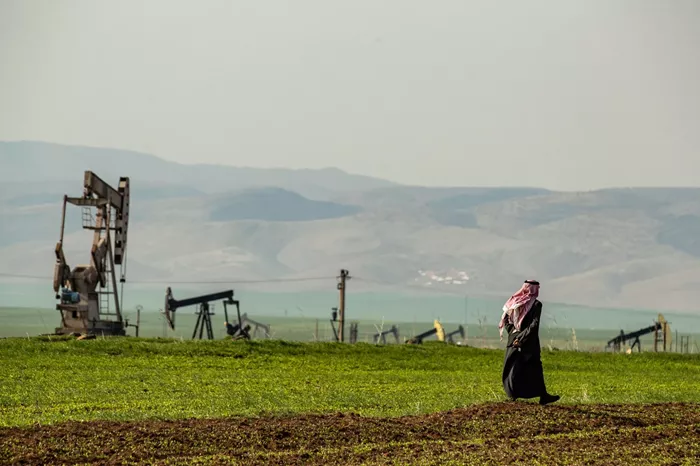Turkey has announced plans to assist in increasing oil and natural gas production in Syria, marking a significant step in its efforts to become more involved in the reconstruction of the war-torn nation. This move comes as part of Ankara’s broader outreach aimed at supporting Syria’s recovery following more than a decade of conflict.
On Wednesday, Turkish Energy Minister Alparslan Bayraktar revealed that his government is exploring ways to help address Syria’s severe energy shortages, particularly in electricity, which has been exacerbated by the ongoing destruction of critical infrastructure throughout the civil war.
“We are studying the use of crude oil and natural gas for Syria’s reconstruction,” Bayraktar stated. “Our aim is to inform our counterparts on how we can contribute to these efforts and develop these projects further.”
A New Era of Cooperation
Bayraktar’s remarks underline Turkey’s ambition to play a central role in Syria’s post-conflict rebuilding, especially after the recent advances made by Hayat Tahrir al-Sham (HTS), an Islamist group that toppled President Bashar al-Assad. HTS’s military success in early December 2024 led to the collapse of Assad’s regime, signaling the end of a brutal civil war that began in 2011.
Before the war, Syria’s oil production was modest, but the conflict decimated its oil and gas output. According to Turkish estimates, Syria now produces only about 30,000 barrels of oil per day—roughly 5% of pre-conflict production levels.
Despite Syria’s significantly reduced oil production, there are hopes that cooperation between Turkey and the newly installed leaders in Syria could eventually lead to the resumption of more robust energy operations. Bayraktar suggested that Turkey’s involvement could include new oil and gas pipelines linking Syria to Turkey’s export terminals, which would be crucial for the revival of Syria’s energy industry.
Political and Diplomatic Challenges Ahead
Turkey’s desire to engage with Syria’s new leadership also signals a shift in its diplomatic approach. The HTS group, which is now in control of Damascus, is considered a terrorist organization by many Western nations. However, Bayraktar’s comments hint at a possible change in Turkey’s stance, with Turkish officials suggesting they may soon reconsider their designation of HTS as a terrorist group.
The move to engage with Syria’s interim government reflects President Recep Tayyip Erdoğan’s ongoing strategy to foster ties with the groups leading Syria’s reconstruction. This outreach could potentially pave the way for Turkish companies to take a prominent role in rebuilding the country, particularly in sectors like energy, infrastructure, and manufacturing.
Additionally, Turkey is seeking to address the issue of the more than 3 million Syrian refugees currently residing within its borders. If successful, the reconstruction effort could allow some of these refugees to return to Syria, offering them the opportunity to rebuild their lives in their home country.
Turkey’s Energy and Economic Strategy
Bayraktar also provided an update on Turkey’s domestic energy and economic agenda. The minister disclosed that Turkey is nearing a decision on contractors for the construction of its second and third nuclear power plants, which will be located on the Black Sea coast and in the Thrace region. He also confirmed that talks are underway with Iraq to explore the resumption of oil flow through the Iraq-Ceyhan pipeline, a key route for Turkish energy exports.
In addition, Turkey is expanding its mining projects abroad. The country is set to begin gold production in 2025 at one of its three exploration sites in Niger, with plans to explore additional opportunities in the West African country.
Bayraktar also announced that Turkey is in discussions with France for potential offshore wind power projects, signaling the government’s commitment to diversifying its energy sources. Despite these developments, he assured that Turkey does not intend to increase domestic electricity prices in January.
Turkey’s evolving role in Syria’s reconstruction, particularly in energy and infrastructure, marks a new phase in the geopolitical landscape of the region. As both a neighbor and a key regional power, Turkey’s involvement in Syria could significantly influence the future of the country’s recovery and its relationship with the broader international community.

